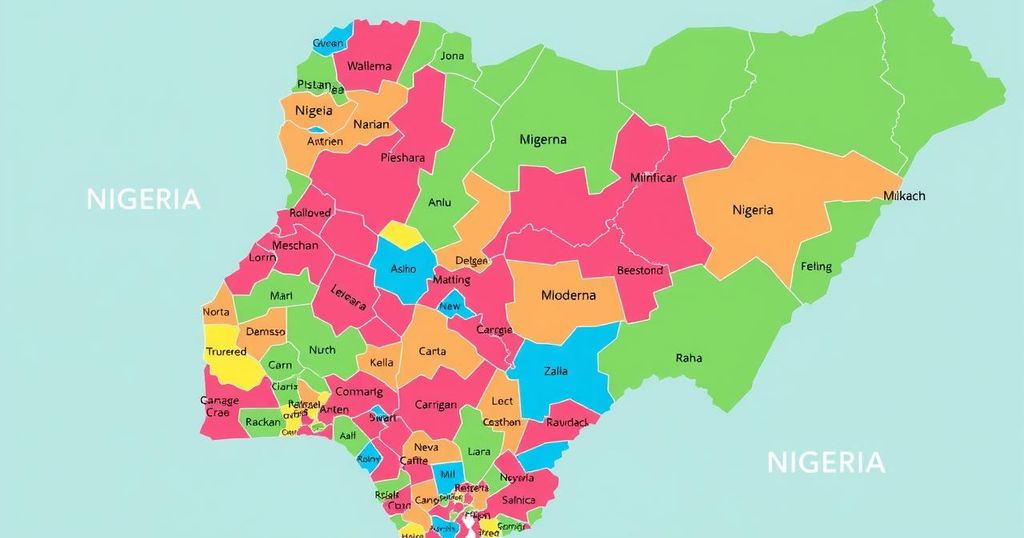The IOM’s DTM Round 16 report reveals 1,322,766 IDPs in north-central and north-west Nigeria, reflecting a 10% increase since the previous assessment. This increase resulted from new locations being added and ongoing displacement factors. The assessment covered 1,761 locations including camps and host communities from October to November 2024.
The International Organization for Migration (IOM) has released the results of Round 16 of its Displacement Tracking Matrix (DTM) assessments, focused on the internal displacement in Nigeria’s north-central and north-west regions, which have been significantly affected by conflict. This assessment took place from October to November 2024, covering ten states including Benue, Kano, and Kaduna, which are the most impacted after the north-east region.
In Round 16, a total of 1,322,766 internally displaced persons (IDPs) were identified across 225,458 households, marking a 10 percent increase of 130,350 individuals since Round 15. This rise is partially due to the assessment of new locations, alongside ongoing conflicts, natural disasters, and seasonal movements for agricultural purposes or improved safety and services. The assessment encompassed 1,761 locations, including 104 camps and camp-like settlements as well as 1,657 venues where IDPs reside within host communities, all documented in November 2024.
The DTM assessments by IOM reveal essential insights into the internal displacement situation in north-central and north-west Nigeria. With a notable increase in IDPs and extensive assessments across various locations, it becomes clear that the ongoing conflicts and associated pressures continue to impact the region significantly. Continued monitoring and support will be crucial for addressing the needs of these vulnerable populations.
Original Source: reliefweb.int






